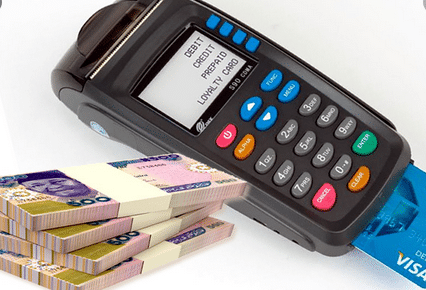Top Authors
Popular Posts
BREAKING: US Military Unleashes Coordinated Airstrike on Terrorist Camps in Nigeria
Kidnapping Industry Booms as Ransom Payments Hit N2.57bn in One Year
Season’s Greetings From TechTV
Netflix Set to Bid $5.9 Billion for Exclusive UEFA Champions League Broadcast Rights
December 11, 2025
Global video streaming powerhouse Netflix is reportedly...
NSE Endorses IEEE Summit 2025 as Nentawe Yilwatda Named Keynote Speaker
November 11, 2025
The Nigerian Society of Engineers (NSE) has officially endorsed...
Is Nigeria’s Software Industry Powerless in the Age of AI? By Don Pedro Aganbi
October 29, 2025
Artificial Intelligence (AI) is rewriting the rules of global...
Amazon Sacks 30,000 Corporate Workers in Its Biggest Layoffs Yet
October 29, 2025
Amazon is set to embark on one of the largest corporate job cuts...
Unicloud Africa Launches Africa’s Premier Sovereign Cloud Platform with 99.999% Uptime SLA, Zero Egress Fees, and Local Currency Billing
October 29, 2025
Unicloud Africa, the premier pan-African cloud platform...
Africa’s Investment Shake-Up: Small Economies Outshine The Giants in 2025/2026 Rankings
October 29, 2025
According to Rand Merchant Bank’s Where to Invest in Africa...
Meet The Entrepreneurs Redefining Nigeria’s Smartphone Retail Chains
October 29, 2025
Smartphones have become the engine of Nigeria’s digital economy...
MTN Celebrates 300 Million Subscribers Across Africa, Strengthens Africa’s Digital Agenda
October 20, 2025
Africa’s largest telecoms company, MTN Group, has officially...
JAPA: Nollywood Actors Who Relocated Abroad for Greener Pastures
October 20, 2025
The “Japa” wave — Nigeria’s migration trend in search of better...
PoS Operators Raise Alarm: CBN’s New Policy Threatens Small Fintechs, Promotes Monopoly
October 17, 2025
Point of Sale (PoS) operators in Nigeria have expressed deep...
Most Viewed
Meet the 7 ICT Stocks That Added ₦6.8tn to NGX Market Value in 2025
December 16, 2025
.ng And AI: Nigeria’s Digital Identity in a Thinking World
December 16, 2025





















